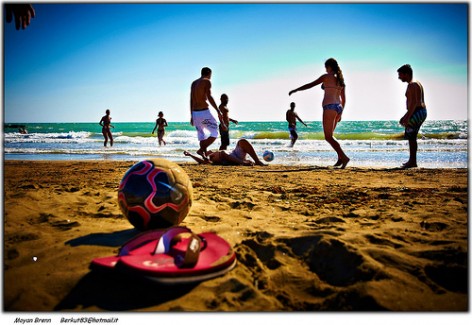We all enjoy the long relaxed days of summer. Usually during the summer time, we all try to spend a day or two at the beach, or perhaps a long-weekend road trip along the coast, or if you’re lucky, a vacation abroad. But relaxing under the summer sun should not mean letting your guard down, when it comes to health and hygiene. Practice extreme caution to prevent contacting diseases including hepatitis on your vacation.

Stay safe and healthy under the summer sun (Photocredit: Moyan Brenn/Creative Commons)
Hepatitis A, for example, can be acquired from contaminated water. In fact, even filtered sources of water, once it comes in contact with any infected food or person, may still be carriers of the hepatitis virus.
Unsafe water causes truly discomforting, and possibly fatal illnesses, such typhoid fever, dysentery, gastroenteritis and other intestinal ailments.
Summer heat and activities usually cause people to drink more water everyday. With this increase in the demand for drinking water, especially in places where sanitary conditions are substandard, water quality may not be prioritized, or ignored altogether.
Hepatitis A transmission can also happen from consuming contaminated food. While it would be very tempting to experience exotic street food, do a double-take on the sanitation environment before eating anything.
Before going for a vacation abroad, make sure to add immunization appointments to your to-do list. Getting vaccines for hepatitis A and B, for example, are cost effective ways to protect yourself and your family from diseases.
Vaccine for hepatitis A comes in two doses, the second given after 6 months. Hepatitis B vaccine is given in three doses over 6 months for adults, while children are advised to get three or four doses that are spread out over a period of 6 to 18 months. Adults may also get a combined immunization for hepatitis A and B.
Then the obvious question comes: What if you don’t have six months before your trip to complete the vaccination requirements? Considering the wide timeframe needed for all these vaccines, doctors strongly suggest that travelers get at least the fist dose to have partial immunity.
When going out and about in a new place, it would be a good idea to bring your own drinking water – ensuring of course that you got it from a safe and reliable source.
Finally, research on the health risks and prevalent diseases in your travel destination – not just the sights to see. This is not to blow the vacation bubble, but will help you be fully prepared. Staying vigilant regarding our health is a prerequisite for a stress-free, enjoyable holiday.






























